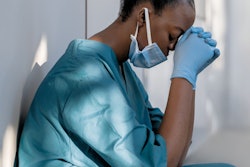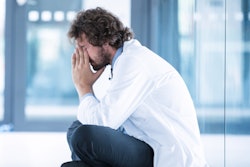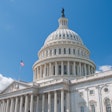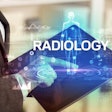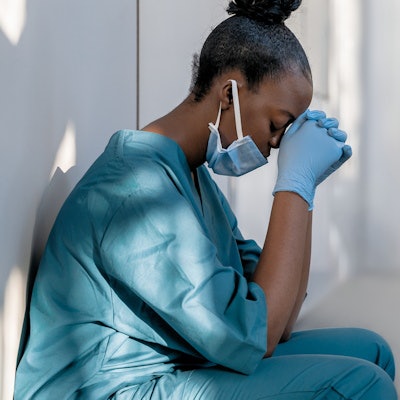
Radiology personnel may be weathering COVID-19-induced stress and anxiety better than their colleagues in other parts of the hospital, according to a February 16 study in the Journal of Medical Imaging and Radiation Oncology.
In particular, high levels of job dedication and fewer instances of longer working shifts seem to protect radiology staff from anxiety and burnout, wrote a team led by Dr. Hian Liang Huang of Singapore General Hospital in Singapore. The group assessed the mental health of staff in its Division of Radiological Sciences (RADSC) between March and July 2020.
"We ... found that job dedication and teamwork were stronger among RADSC staff compared to the larger hospital cohort," the team wrote. "Among the RADSC staff, length of working hours and job dedication were factors that could potentially reduce burnout and anxiety in radiology departments."
The COVID-19 pandemic has killed hundreds of thousands of people around the world, interrupted the global economy, and depleted healthcare resources. Yet its psychological impact on healthcare providers -- specifically levels of anxiety and burnout -- has yet to be thoroughly investigated, Huang's group wrote.
"There have been some early studies demonstrating the psychological impact upon general healthcare providers in terms of anxiety and burnout," the authors wrote. "However, there have been few studies examining the pandemic's effect specifically upon radiology divisions, and no studies showing how these effects compare to hospital cohorts as a whole."
The team sought to assess these mental health conditions among 180 of the hospital's radiology staff during the height of the COVID-19 pandemic, tracking potential risk and protective factors. Huang's group compared radiological staff outcomes with those of a cohort of 1,458 nonradiological staff using the Physician Worklife Survey (results expressed in a five-point scale) and the Generalized Anxiety Disorder-7 Scale (with 0 to 4 representing minimal anxiety, 5 to 9 mild anxiety, 10 to 14, moderate anxiety, and 15 to 21, severe anxiety).
The researchers found that the radiology staff actually had lower levels of stress and burnout compared with their hospital peers, despite similar exposure to COVID-19 patients.
| Prevalence of anxiety and burnout among radiological and nonradiological medical staff | ||
| Health condition | Nonradiological staff | Radiological staff |
| Moderate-to-severe anxiety rates | 13.2% | 6.7% |
| Burnout rates | 23.9% | 17.8% |
The authors found that radiology staff had fewer longer-than-usual work shifts compared with their peers (36.7% vs. 41.6%), and that high job dedication was associated with lower anxiety and burnout levels among radiology personnel.
How can job dedication -- and thus workplace resilience -- be increased? Huang and colleagues emphasized three strategies:
- Maintaining a clear sense of purpose. "The RADSC vision and mission ... is ubiquitous both in electronic and paper form," the team noted.
- Providing clear communication between leadership and staff. "At the onset of the pandemic, chat groups were quickly formed ... to disseminate up-to-date information and instructions," the group wrote.
- Offering encouragement and appreciation. "Thank-you cards are pasted on our dining area walls and our RADSC division regularly distributes care packs containing notes of appreciation from the public and hygiene products such as hand sanitizer and facemasks," according to Huang and colleagues.
The study findings suggest that there are relatively simple ways to reduce staff anxiety and burnout, even in a pandemic, the team concluded.
"Work hours and job dedication are potentially modifiable factors that are associated with lower reported levels of anxiety and burnout in radiology departments, particularly during stressful periods as encountered during the COVID-19 pandemic," the authors wrote. "If these factors can be properly addressed, the [negative psychological effects of] COVID-19 could be mitigated."





